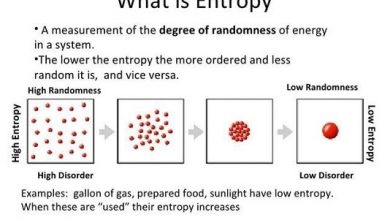Real skills their origin and difference with soft skills and hard skills
What are real skills
The real skills – or hybrid skills – as true skills, which unify the behavioral skills with the techniques developed throughout life.
Unless you work in very specific areas, you may never have used some mathematical formulas, like Bhaskar, or the elements of the periodic table, not to mention the use of Mesoclitic.
On the other hand, we often do not learn skills necessary for everyday life at school , such as relationships with people , resilience , empathy , and even dealing with frustrations . At least, these questions are not in the curriculum.
But when we get to the job market, all this is necessary. Knowing how to deal with the boss, with co-workers, with the daily pressures and, still, be productive, motivated, lead people by example.
Real skills are precisely the mixture of skills we learn in school and college with the emotional learning that we develop through social interaction.
What is the origin of real skills?
It is acceptable to say that real skills emerged from the junction between soft skills and hard skills , but it is more than that. They arose from the need to humanize hiring and work relationships in companies . Also from the perception that we cannot separate the professional and personal side of any person.
Real skills were born from the need to create professional environments with a healthy organizational climate , which contribute to the personal and professional growth of human beings.
What are the differences between real skills, soft skills and hard skills?
With so many names, it is understandable that many people are still not sure what exactly each type of competence means. So, check the definitions of each one.
1-hard skills
Hard skills are the technical skills developed over the years through study . These competencies can be tested, evaluated and measured.
It’s everything you put on your resume or LinkedIn profile , such as graduation , level of English and knowledge of specific tools related to your area of expertise.
See some examples:
- Advanced Excel;
- Image editing;
- Domain in programming systems;
- Advanced German (or any language).
These are skills developed and acquired according to your career and the need for professional improvement.
Hard skills are usually prerequisites in the recruitment and selection processes and can be compared between people, analyzing who has more mastery in a certain aspect.
2-soft skills
Soft skills are usually not on the curriculum, but part of the personality. These are subjective characteristics, such as social behavior and interpersonal, emotional and mental abilities.
They are related to the development of emotional intelligence and have gained more evidence in recent years, especially during the Covid-19 pandemic, which changed work relationships and demanded much more emotional control from people.
Often, soft skills are innate, that is, the person is born with greater ease or mastery of certain skills, but all these skills can be learned. See some examples:
- Organization;
- Time management;
- Sympathy;
- Flexibility;
- Efficient communication;
- Leadership .
Professionals who work with recruitment processes and candidate selection for companies use tools that are able to identify these characteristics and compare them with the needs of the available position, in order to choose the best candidate. This is called competency management .
3-real skills
It is useless to have a professional with an excellent technical level, but who cannot transmit this knowledge to his subordinates.
Or, a motivated and proactive person, but who cannot meet deadlines or who makes repeated mistakes for not paying attention to the work done.
It is necessary to reconcile behavioral and technical skills to become a complete and competent professional for the development of their functions.
Professionals with real skills are considered hybrids , as they are analytical , resilient , flexible and empathetic with the team and are more present to events, managing to leverage the best of their teams and generate more results for the company.
What are the advantages of a professional with real skills?
With the changes seen in recent years, companies need to have a more open look at the innovation demanded by the market and real skills are the skills that will bring expressive results and make a difference.
These can be more difficult to identify in a selection process, but they are certainly the key to developing efficient and human teams.
Companies that focus on real skills can count on more perceptive , charismatic and motivated , resilient and empathetic professionals, who contribute to the daily lives of organizations with their life experiences.
What are the real skills most sought after by companies?
As a recent concept, brought by the American writer Seth Godin , the classification of real skills is still broad and flexible, as they have variations.
For the same reason, many companies still do not have the real skills in their most sought after requirements. However, more and more organizations realize this need and adopt more efficient resources to find professionals with these characteristics.
Seth Godin categorized real skills into 5 fields: self-control , productivity , wisdom , insight and influence .
1-Self control
The encompassed skills in this field are related to managing the work itself, the ability to adapt , the motivation to overcome challenges , proactivity , empathy , resilience and the ability to transmit knowledge .
2-Productivity
These are skills related to the knowledge acquired through experience, such as the ease of use of certain technological tools and also the application of this knowledge in the search for efficient results for the team and the company.
3-Wisdom
These competences are related to creativity , critical thinking , artistic sense , diplomacy , and the use of all these skills in the interaction and relationship with the team , with their work partners and with customers.
4-Perception
Perceptive skills consist of being able to see the future , identifying trends and developing strategies to achieve goals.
5-Influence
The real influence skills are related to the ability of transparent communication , persuasion , influence and leadership , which favor engagement among co-workers in a team.
Despite this initial concept, the actual capabilities are constantly evolving. The report The Future the Jobs Report 2020 , produced by the World Economic Forum, cites the skills identified as increasing until 2025. See what:
- Analytical and innovative thinking;
- Continuous learning of strategies;
- Solving complex problems;
- Creativity and initiative;
- Leadership and social influence;
- Use, monitoring and control of technological devices;
- Resilience, tolerance and flexibility;
- Negotiation ability;
- Emotional intelligence.
You can see that there is a convergence between practical and behavioral skills. Companies that are at the forefront of this movement see the adoption of real skills as a way to deliver more efficient services to the world, in addition to promoting knowledge and sharing best practices with people.
How to develop real skills?
Companies play a fundamental role in the training of employees, making them more qualified. And it does this with specific training and also building a healthy and fair work environment for all participants.
To achieve these results it is important to follow some important precepts, see below.
1-Count on close and collaborative leaders
That idea of an authoritarian, demanding and inaccessible leadership is totally out of date today. Instead of her, today, a resilient, motivating figure who embraces causes and encourages the professional growth of those he leads is expected.
These are identified in this participative and integrative leadership posture, in which leaders are open to listening to employees about their needs, promoting an important exchange of experiences.
One of the main ways to develop this competence is through non-violent communication, which is the ability to put yourself in the other’s shoes, encouraging and not criticizing subordinates. Thus, the leader is able to create points of contact and give more accurate feedback.
2-Build a people management sector focused on people
The People Management sector is responsible for valuing the company’s human capital. In addition, it needs to reconcile the organizational culture of the business with the desires and needs of employees.
To develop these skills, managers need to understand the behavior of teams, using different resources. In addition, actions that value continuous learning should always be encouraged.
3-Count on collaborative management
When everyone on the team has space to participate in project planning to propose ideas, the motivation to learn, develop and deliver quality results is much greater.
Sharing data and offering training and qualifications are the most important ingredient for employees to develop these skills and seek innovative solutions.
Other ways to develop real skills:
- Making new friends – Making yourself available to meet new people is an opportunity to develop these skills as you will need to increase your charisma, be flexible, tolerate differences and have compassion towards other people at times.
- Public Speaking – Many people feel ashamed to speak in public, but this is a real important skill to develop. Start with a small group, like a work meeting, a party. This exercise helps develop self-confidence, strategic thinking, the ability to make mistakes and fix quickly, among other skills.
- Talk to Strangers – People like to talk about themselves and listening to stories can help you develop your empathy, recognize your shortcomings, improve your communication and your ability to understand.




